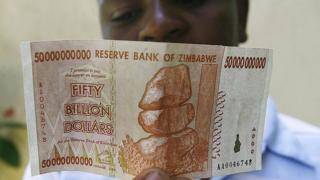SwimExpert
Gold Member
- Nov 26, 2013
- 16,247
- 1,679
- 280
- Banned
- #21
wrong, numskull, that is exactly what is says in my OP.
Your OP shows hyperinflation in Zimbabwe, and makes a baseless claim that it will happen in the United States. The economic problems in the United States are not inflation, they are in wealth redistribution (though not in the way that you would invoke it), and the demise of the small business market, among other things.


